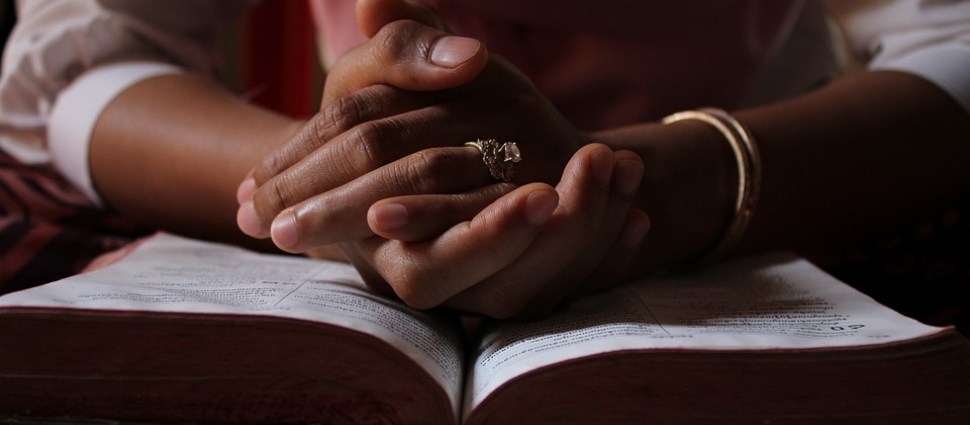Hamu Lujonza Kaddu Mukasa and the Early Church in Uganda

Hamu Lujonza Kaddu Mukasa and the Early Church in Uganda
In 1882, twelve-year-old Hamu Lujonza Kaddu Mukasa, son of a chief in the Buganda Kingdom, was sent to the court of King Mutesa I to serve as a page. There, his life began to take a course he had never imagined.
From Mukasa to Hamu
At court, he was exposed to new experiences and new religions, particularly Islam, which was the king’s favorite religion. He also visited the local Anglican mission, where he was invited to take reading lessons. At that time, Mukasa didn’t know anything about Christianity and thought it was the same as Islam. He remembered a sermon about the final judgment that filled him with fear.
King Mutesa allowed Anglicans and Catholics to operate inside his officially Muslim kingdom because he mistrusted all foreigners (including Muslim Arabs) and hoped that they would cancel each other out. When he died in 1884, he was succeeded by his sixteen-year-old son Mwanga, who didn’t hide his dislike for Christians. The first victim of this new policy was the Anglican Bishop James Hannington, who was murdered while traveling.
Mukasa was at home visiting his family during the change of government, and stayed there for a while. When he returned to court, he discovered that many of the pages had learned how to read. Some were reading the gospels and prayer-books. More than ever, Mukasa wanted to learn too, but he was progressing slowly because he was not putting out enough effort.
Mwanga was not pleased to learn that many of his pages could read, since he knew they were getting educated at the Christian mission. He demanded that they renounce their faith in Christ, and killed those who refused. On 3 June 1886, 22 Christian pages were burned to death at Namugongo, 16 miles east of the Ugandan capital, Kempala. Witnesses to the execution reported that the martyrs went to their death with joy and endured the fire with courage.
Feeling threatened because of his Christian connections, Mukasa escaped to a nearby village, until he heard news that the king wanted him back and was willing to forgive him for running away. In fact, when Mukasa returned, Mwanga put him in charge of the other pages.
Still, life at court was not a bed of roses. Mukasa had to endure both the slanders of jealous rivals and the swinging moods of the king. Each time, his life was spared. Later, Mukasa recognized this as an act of God’s mercy.
In the meantime, he refined his reading skills and attended services at the Anglican mission. In 1886, he was baptized and adopted the name Hamu as a symbol of a new life. He reported in his memoirs his feelings of an ongoing spiritual battle between the “old man” Mukasa and the “new man” Hamu.
A Slow But Sure Progress
In 1888, Mwanga was defeated and exiled by a Muslim party. Forced to convert to Islam, about 500 Ugandan Christians rebelled and were defeated. Four hundred capitulated, while one hundred fled to Ankole, in south-west Uganda, where the king had found refuge, and persuaded him to organize a resistance with European backing. Unwilling to ally with just one European power, Mwanga signed treaties with both the Germans and the British.
Mukasa led the first battle, on September 2, 1889, and suffered a serious injury in his leg. While he was confined to his bed, wishing for death because of the pain, some African Christians visited him, read the Bible, and prayed for him.
The following year, the resistance won and Mwanga regained control of Uganda. In gratefulness to the Christians who had helped him, he allowed the building of churches. He also became, at least formally, a Roman Catholic. When, following a civil unrest, the Protestants gained primacy in Uganda, the king asked the Anglican Church to take him as one of their members. Recognizing this as a political move, the pastor, H. W. Kitabule advised him to stay with the church he had already chosen.
Mwanga made Mukasa a county chief in his government. Initially, Mukasa still had some fierce battles, especially against alcoholism. He gave up drinking altogether in 1892, when he was placed in charge of a group of young men and realized he was setting a terrible example.
His memoirs describe his slow progress in the Christian life and his difficult marriage with an unbeliever, Hanah Mawemuko, who for two years refused to hear the gospel or readings from the Bible. Her conversion brought joy and relief to Mukasa, who understood that God has his own timetable.
In the meantime, Mukasa continued to attend the missionary school. After graduation, he worked to bring the gospel to his people and to other African countries. His first trip to England in 1902, as an escort for Prime Minister Apollo Kagwa, allowed him to visit more churches and deepen his understanding of Christianity.
A strong believer in a self-governing, self-supporting, and self-propagating church, he backed the appointment of Aberi Balya as bishop in the Native Anglican Church of Uganda and encouraged everyone, rich and poor, to contribute to the building of churches and Christian schools. He set the example by devoting many of his funds to this purpose, including the building of Bishop Tucker Theological College, now called Uganda Christian University.
Mukasa retired from public office in 1951. The following year, his health began to fail. He died in 1956, at about 85 years of age, leaving behind fourteen children, four from Hana (who died in 1919) and ten from his second wife, Sarah. One of his grandsons is currently king of Buganda, now a constitutional kingdom within Uganda. Mukasa is remembered in Uganda as a promoter of both Christianity and education.





